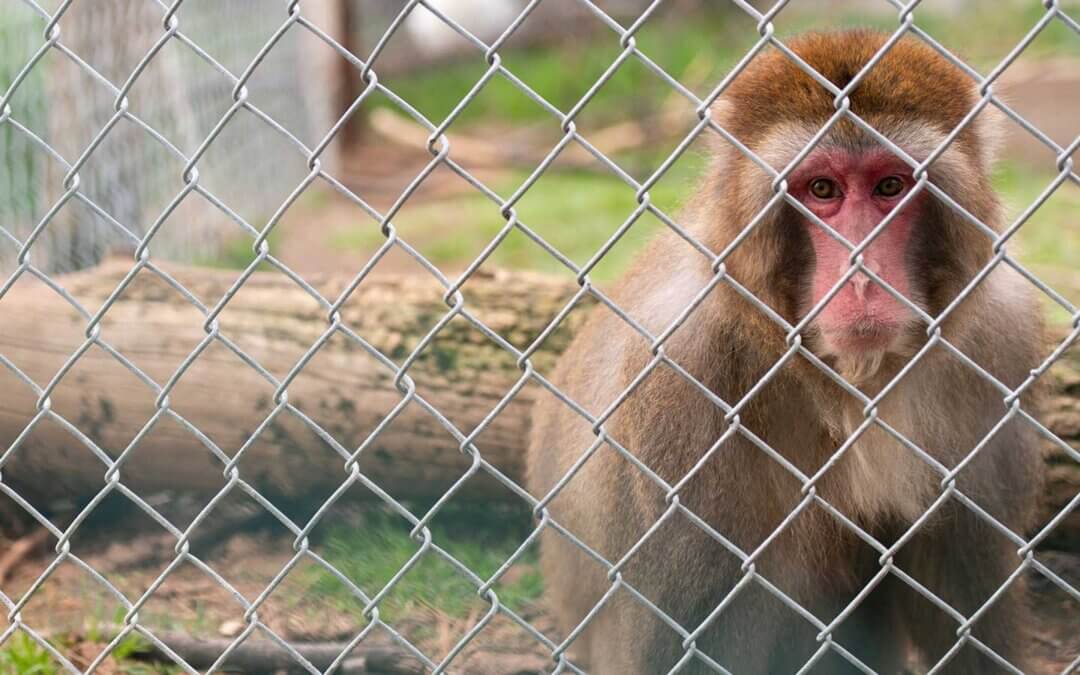ST-ÉDOUARD-DE-MASKINONGÉ, CANADA (May 21, 2019) – Humane Society International/Canada, Friends of HSI, and HSI global–with the generous support of the Eric S. Margolis Family Foundation–are working alongside the Montreal SPCA in the seizure of animals from a roadside zoo in St-Édouard-de-Maskinongé, Quebec. The owner of the unaccredited facility has been arrested and charged with neglect and cruelty to animals under the Canadian Criminal Code. If convicted, the accused could face a five-year prison sentence and a lifetime ban on having custody or control of any animal.
Experts from HSI’s Canadian and global affiliates will provide specialized care for more than 100 wild and exotic comprising dozens of different species as of the date of the seizure, as well as transport of all wild animals to a network of partner sanctuaries throughout North America. A number of the animals are listed on Appendix I of the Convention on International Trade in Endangered Species of Wild Fauna and Flora (CITES).
Rebecca Aldworth, executive director of HSI/Canada, stated, “We are pleased to play a critical role in getting these deserving animals to safety, with the incredible support of the Eric S. Margolis Family Foundation. It was disturbing to see this facility. Many of the animals were confined in dark, barren, dilapidated enclosures. Others were living with entirely inadequate shelter with minimal protection from the elements. Some of the animals did not even appear to have access to water or proper food and appeared to be suffering from a variety of medical conditions. Some of the animals were showing signs of significant psychological distress including compulsive, constant pacing. Notably, dead and ill animals have been removed or seized from this property in recent months. This case underscores the importance of strong animal welfare provisions in Canada’s Criminal Code, particularly as they apply to situations of gross neglect.”
Eric Margolis, founder of the Eric S. Margolis Family Foundation, said, “Our foundation supports organizations that provide care for abused, neglected and abandoned animals, both wild and domesticated. We will always support the work of organizations like HSI/Canada and Friends of HSI, who defend those who cannot defend themselves.”
HSI/Canada has campaigned for over a decade to achieve meaningful improvements to the animal welfare provisions in Canada’s Criminal Code. One of the primary deficiencies in the Criminal Code is the need for enforcement authorities to prove willfulness on the part of neglectful owners before they are able to lay criminal charges and seize animals. This results in protracted suffering and can prevent appropriate application of the Criminal Code in situations of neglect.
This crucial work was made possible through the generous support of the Eric S. Margolis Family Foundation, which has worked in partnership with Friends of HSI and HSI/Canada for years to rescue thousands of animals from situations of cruelty and neglect.
Facts:
- HSI has decades of experience in mass animal rescue, care and placement, including with wild and exotic animals.
- The care, transport and placement of wild and exotic animals is highly specialized and HSI/Canada, Friends of HSI and our global affiliates will carry this work out over several weeks.
- The roadside zoo in question has a long history of warnings and charges from the provincial government.
- The Montreal SPCA performed its first inspection of the facility in August 2018. In addition to noting several offenses regarding the physical state of the animals and their living conditions, SPCA officers seized two alpacas in particularly poor condition as well as the bodies of four animals found deceased on site, including two tigers. This intervention led to the criminal charges.
- The owner was charged with two counts of criminal animal neglect and cruelty, covering the timeframe 2016-2018. According to the Montreal SPCA, this is the first time in Quebec that animal welfare charges have been laid by way of indictment, a type of prosecution reserved for the most serious offenses and which opens the door to more serious penalties.

